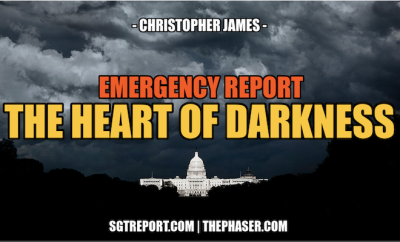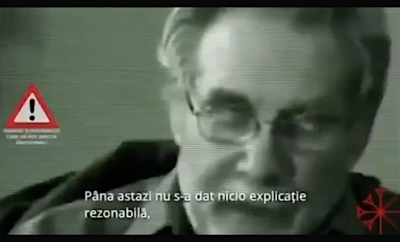Fukushima
Impact of Fukushima’s Radiation on Wildlife – Biologist Timothy Mousseau
from MsMilkytheclown1:
VIDEO: This video was Originally a Three hour long video. I edited it to include ONLY ENGLISH translation into a little over one hour. This was the most difficult translation edit I have done to date because the translators kept jumping in every 7-18 seconds creating a LOT of edit work and kept my computer on a constant crash after crash course. I hope you enjoy the edited version. If you’d like to watch the original three hour long video, feel free. Here it is: Biologist Timothy Mousseau: Impact of Radiation on Wildlife of Fukushimahttps://youtu.be/7n_ClrPHfD0
Compare Tim Mousseau’s findings in This video (from January 11, 2016) to Fukushima Catastrophe and its Effects on Wildlife (Aug 2014) https://youtu.be/V6beUgyJPJ4
Lecture at Fukushima on Jan 11, 2016
” Impact of Radiation on Wildlife of Fukushima”
中継の視聴をのがしてしまったので、のちほど視聴してみます。
生物学の視点から。
http://iwj.co.jp/wj/open/archives/281875
Notes I made along the way:
1:50 he says Chernobyl was a bigger catastrophy than Fukushima (bullshit – Fukushima has Three Full Core meltdown and melt outs, with SERIOUS ISSUES in All of the Spent Fuel Pools.
Strong genetic damage to DNA in Plants and Animals
20:54 Study Not Published Yet – see graph
27 min Radon 2nd most common cause of lung cancer
28:00 sinister laugh
28:20: go take a hot bath and relax
28:53 Remember: Japan allows a “mere” one hundered BQ/KG radiation in their food. The US and Canada allow a whopping one thousand two hundred BQ/KG in Their food, and the EPA isn’t even checking for it. So what is considered UNSAFE for Japan is Perfectly Legal to export to other countries with lower standards. Remember, they just lifted the restrictions on shipping to the EU the other day! Fukushima Food t☢ EU, SICK Animals on W Coast. N Korea, India Nuclear Update 1/8/16https://www.youtube.com/watch?v=BJFnw…
Fukushima farmers Refuse to Eat their Own Food https://youtu.be/bDVflscdUaQ
Fukushima & US Food Monitoring ⚛ C. Folkers 3/12/13 https://youtu.be/pD7IyS26VNU
31:17 Mousseau studied Chernobyl because he was interested in evolutionary Biology – Not Radiation
37:00 overwhelming strong effects of radiation
41:23 Wild Chernobyl animals ten times more suseptable to radiation than laboratory animals – probably because of the stress of living in the wild
45:07 Nobody is measuring OverAll health and it will never be studied
46:31 Wanted to put in clip with Steve Martin “Hey, that will be our motto. “It Won’t Kill You” ” but computer crashed repeatedly.
54:42 We think we have discovered how animals have adapted in Chernobyl.
Birds use melanin (to create colors of feathers). GSH (A precurser to melanin) is an antioxidant and also defends against radiation.
62:00 He says Fukushima was LUCKY because Fukushima has mainly Cesium, and then he goes on to say that in Chernobyl – that has more of things like Strontium, Neptunium, etc and that Land in Chernobyl may Never be fully recoverable. He neglects to say that parts of Fukushima ALSO have VERY HARMFUL Plutonium, ETC ETC ETC. He totally brushed that off and pussy footed around it. He goes on to say that radiation will get smaller and smaller each year. What a crock of crap! The reactors are STILL IN FULL MELTDOWN MODE, THEY HAVE NO TECHNOLOGY TO REPAIR/DECONTAMINATE/STOP THE REACTIONS. They are burning radioactive debris all across Japan.
Now, go take hot a bath and de-stress…
In Mr. Mousseau’s own words:
***IT’S IMPORTANT TO BE SKEPTICAL – TO BE THINKING BEFORE BELIEVING EVERYTHING YOU HEAR***
***I HOPE THAT’S NOT TOO DEPRESSING***
~~~~~
Timothy A. Mousseau: “Fukushima Catastrophe and its Effects on Wildlife” August, 2014 (yes, a year ago).https://youtu.be/8IcTGUMwVtU Includes Q & A. http://enenews.com/?s=genetic+mutation
and http://enenews.com/?s=mutated
More about Timothy Musseau http://cricket.biol.sc.edu/Mousseau/M…
and http://www.biol.sc.edu/faculty/mousseau
Professor Timothy Mousseau received his doctoral degree in 1988 from McGill University and completed a NSERC (Canada) postdoctoral fellowship in population biology at the University of California, Davis. He joined the faculty at the University of South Carolina in 1991 and is currently a Professor in the Department of Biological Sciences in the College of Arts & Sciences.
Mousseau and his students have worked on a wide diversity of organisms, from bacteria to beetles to birds, and his primary areas of research interest include the genetic basis of adaptive variation, and the evolution of maternal effects.












